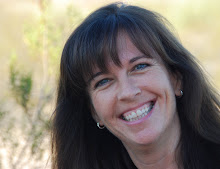New Recovery Resource for Students
I am notifying all my friends who may know someone who could benefit from a new meeting I am starting up.
This meeting is for Students Living In Recovery from addiction to alcohol & drugs.
I need your help getting the word out. This meeting is the foundation for building a resource for people who are already in recovery and helping other students who need and want recovery. It is about bridging recovery and education; helping students who need addiction treatment stay in school (or return to school quickly after receiving primary treatment) and helping people who are in recovery get back in school, stay in school, and be successful in their studies and future goals.
Please forward this information to as many people as you know who are in recovery and in school and invite them to our meeting. They can just show up, no need to make a reservation or anything.
Thank you so much! If you want more info please call or email me, 602-696-5532 / karen@scottsdaleintervention.com. I'd love to talk more about it!
Karen
New SLIR meeting for Students Living in Recovery
Thursdays at 7pm (free/no charge)
Starting Thursday October 7, 2010
Open to all students who are currently living in recovery from addiction to alcohol & drugs
·Meet other students who have similar goals and challenges
·Be part of forming a recovering collegiate community at ASU and other local colleges
Be a resource for other students beginning recovery from addiction to alcohol & drugs
·Peer based structure, no therapist or counselor leadership
Centrally located at: ASU - Downtown Phoenix
Nursing Health Innovation 1 Building
500 N 3rd Street, Suite 157
Phoenix AZ 85004
(North East corner of 3rd Street & Taylor,entrance on Taylor)
Hope to see you there!
This meeting is for Students Living In Recovery from addiction to alcohol & drugs.
I need your help getting the word out. This meeting is the foundation for building a resource for people who are already in recovery and helping other students who need and want recovery. It is about bridging recovery and education; helping students who need addiction treatment stay in school (or return to school quickly after receiving primary treatment) and helping people who are in recovery get back in school, stay in school, and be successful in their studies and future goals.
Please forward this information to as many people as you know who are in recovery and in school and invite them to our meeting. They can just show up, no need to make a reservation or anything.
Thank you so much! If you want more info please call or email me, 602-696-5532 / karen@scottsdaleintervention.com. I'd love to talk more about it!
Karen
New SLIR meeting for Students Living in Recovery
Thursdays at 7pm (free/no charge)
Starting Thursday October 7, 2010
Open to all students who are currently living in recovery from addiction to alcohol & drugs
·Meet other students who have similar goals and challenges
·Be part of forming a recovering collegiate community at ASU and other local colleges
Be a resource for other students beginning recovery from addiction to alcohol & drugs
·Peer based structure, no therapist or counselor leadership
Centrally located at: ASU - Downtown Phoenix
Nursing Health Innovation 1 Building
500 N 3rd Street, Suite 157
Phoenix AZ 85004
(North East corner of 3rd Street & Taylor,entrance on Taylor)
Hope to see you there!
Labels: addiction, alcohol addiction, counseling, drug addiction, gambling addiction, interventions, recovery

